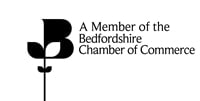Spreadsheets are great. I use them all the time; Collecting data, Cash Flow Forecasts, Combining research.
So why the title of this post?
The problem is, I use spreadsheets way too much. They are like Pringles, once you start, you can’t stop.
Top 3 Spreadsheet Problems
1. Errors are easy to make and hard to find
- JP Morgan lost $6Bn due to a cut ans Paste error
- The London Olympics over sold an event by 10,000 seats due to a person entering a 2 instead of a 1.
- Barclays bought 179 more contracts then they intended to due to a formatting error. The cost was undisclosed.
- Cut and Paste error caused £16m remedial work on a £150m childrens hospital in Scotland
2. Impossible to protect your IP
Some spreadsheets allow you to protect cells, worksheets and/or hide columns. You can event set a password.
And you may think that this will protect your hard earned Intellectual property when you send a spreadsheet out to a customer.
Unfortunately it will not. A quick Google search will bring up several ways to get around these “protections”. My favorite is just uploading the spreadsheet to Google Sheets
3. Versioning is a nightmare
Each time I save a spreadsheet I add a version number to the filename. But what are the differences between them? I can’t remember.
If I send one the latest sheet to my colleague and they send it back, which one now contains the latest information?
Some of these problems can be solved by using something like Sharepoint or Google Drive to hold the spreadsheet, but understanding what has changed is still a problem.
What is the alternative?
Depending on what you are doing there are a wide range of options. For most it is also possible to find either Open Source or an intial Free tier
- Storing Customer contact data? – Look at a using a CRM e.g. Hubspot has a free tier
- Creating invoices and storing financial data? – Look at a simple bookkeeping system e.g. Wave
- Capturing Customer data? Take a look at a Form Builder tool. e.g. JotForm
- Something a bit more complicated. Try NoCode@Digitwell
Is NoCode a solution?
The advantage of using a spreadsheet is that it tends to be quick, as you already know how to use the spreadsheet, and usually you don’t need to spend any money up front.
In many cases this is more than outweighed by the longer term problems.
If you would like to talk through how you can migrate from a spreadsheet to something more robust, you can contact me.



